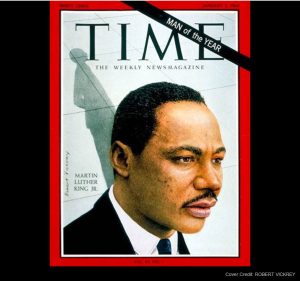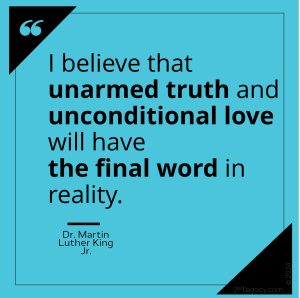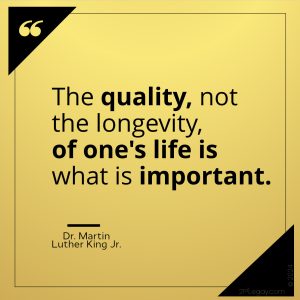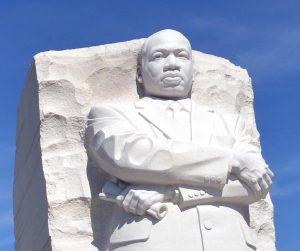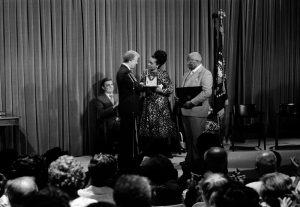The Legacy of Dr. Martin Luther King Jr.
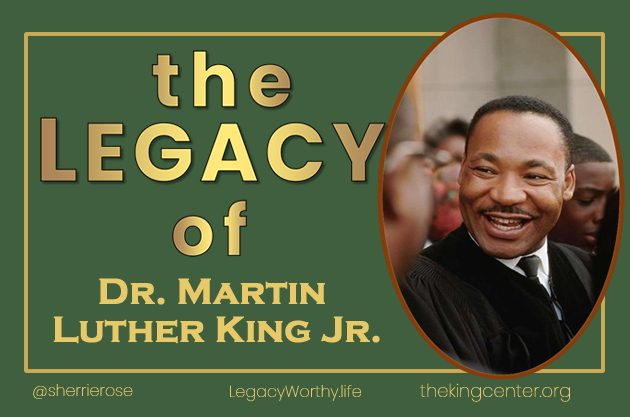
The Legacy of Dr. Martin Luther King Jr.
Dr. Martin Luther King Jr. has left an iconic legacy in the history of civil rights, leaving an indelible mark on the struggle for racial equality in the United States. His legacy is multi-faceted, encompassing moments of triumph, resilience, and profound impact. Here are nine key aspects of his life and achievements, each shedding light on the remarkable journey of a man who became a symbol of hope and change.
Martin Luther King Jr.’s legacy extends far beyond geographical boundaries. Born on January 15, 1929, his birthplace, Atlanta, Georgia, served as the backdrop for his early years, where he began his journey toward becoming a prominent leader in the fight against racial injustice.
The tragic end to his life occurred in Memphis, Tennessee, marking the location where he was assassinated. The events surrounding his birth in the Southern United States to his death in the heart of the nation’s struggle for civil rights encapsulate a life dedicated to the pursuit of a more just and equitable society.
1. Pioneering Recognition: The First Black TIME Man of the Year Dr. Martin Luther King Jr.
In 1963, TIME Magazine bestowed a historic honor upon Dr. King by naming him the “Man of the Year.” This groundbreaking recognition marked a pivotal moment in the civil rights movement, signifying not only the acknowledgment of King’s leadership but also the broader societal shift towards recognizing the importance of the struggle for racial equality. It became a beacon of hope, illustrating that the fight for justice was gaining mainstream recognition and underscoring King’s central role in shaping the narrative of the era. Dr. King’s legacy worthy distinction as the first Black TIME Man of the Year is etched in history as a testament to his transformative impact.
2. The Resonance of Dreams: The ‘I Have a Dream’ Speech
Arguably one of the most powerful moments in Dr. King’s legacy is his iconic “I Have a Dream” speech delivered during the March on Washington in 1963. Explore the significance of this speech as a defining moment in the civil rights movement, delving into its global impact and how it became a catalyst for change. Beyond its immediate impact, the speech became a timeless call for equality, resonating through the decades and inspiring generations to come, ensuring that King’s dream continued to reverberate in the hearts and minds of those fighting for justice. Dr. King’s legacy worthy dream speech remains a guiding light in the ongoing pursuit of racial equality. Dr. King’s legacy worthy commitment to nonviolence endured, even in the face of life-threatening challenges.
3. Triumph Over Adversity: An Attempted Assassination and Commitment to Nonviolence
In a harrowing turn of events, Dr. King faced an assassination attempt in Harlem. Highlight the details of the attempt and its aftermath, emphasizing how King’s survival affirmed his unwavering commitment to nonviolence. This near-death experience became a crucible that solidified King’s dedication to the principles of peace and justice. It not only strengthened his resolve but also became a testament to the power of resilience in the face of adversity, inspiring a renewed commitment to the nonviolent struggle for civil rights. Dr. King’s legacy-worthy commitment to nonviolence endured, even in the face of life-threatening challenges.
4. The Cost of Conviction: King’s 30 Arrests for Civil Disobedience
King’s commitment to challenging unjust laws and advocating for civil rights came at a considerable personal cost—he was arrested a staggering 30 times. There are imporant circumstances surrounding each arrest, highlighting the sacrifices King made in the pursuit of equality. Each arrest was a conscious act of civil disobedience, a deliberate step towards dismantling discriminatory systems. King’s willingness to pay the price for his convictions became a powerful symbol of personal sacrifice for the greater good, setting an enduring example for those who followed. Dr. King’s legacy-worthy sacrifices in the pursuit of justice paved the way for a more equitable society.
5. Identity and Influence: King’s Name Change and Martin Luther’s Legacy
King’s name change, inspired by Protestant reformer Martin Luther, carries profound historical and symbolic weight. Investigate the reasons behind this change, exploring the influence of Martin Luther on King’s father and its implications for King’s identity. The adoption of the name ‘Martin Luther King Jr.’ reflected not only personal admiration but also a connection to a legacy of transformative change. It became a symbol of continuity, aligning King’s mission with the spirit of reform that defined Martin Luther’s impact on history. Dr. King’s legacy-worthy name change symbolizes a commitment to transformative ideals.
6. Early Academic Brilliance: King’s Enrollment in Morehouse College at 15
The establishment of Martin Luther King Jr. Day as a federal holiday in 1983, 15 years after King’s death, symbolized a belated but significant recognition of his impact on American society. Delve into the legislative journey and societal dynamics that led to the official recognition of MLK Day. The designation of this day as a federal holiday was not just a formality but a reflection of a growing understanding of the enduring impact of King’s legacy. It marked a collective acknowledgment of the need to honor his contributions and the ongoing relevance of his ideals. Dr. King’s legacy-worthy academic brilliance became a cornerstone of his lifelong pursuit of justice.
7. A Belated Recognition: MLK Day Becomes a Federal Holiday in 1983
The establishment of Martin Luther King Jr. Day as a federal holiday in 1983, 15 years after King’s death, symbolized a belated but significant recognition of his impact on American society. Delve into the legislative journey and societal dynamics that led to the official recognition of MLK Day. The designation of this day as a federal holiday was not just a formality but a reflection of a growing understanding of the enduring impact of King’s legacy. It marked a collective acknowledgment of the need to honor his contributions and the ongoing relevance of his ideals. Dr. King’s legacy worthy impact on American society is epitomized in the annual observance of MLK Day.
The Washington DC engraved memorial to King opened in August 2011 and depicts a 30-foot carving of King on a feature called the “Stone of Hope” that is being moved out of a feature called the “Mountain of Despair,” a reference to a line in the “I Have a Dream speech” called back in the inscription on the side of the statue. King is represented standing firm, resolute, and thoughtful, holding a rolled stack of papers. Quotations from speeches and writings are engraved on the arced “Inscription Wall” on the flanks of the memorial.
8. Unparalleled Recognition: King as the Only Non-President with a National Holiday
Martin Luther King Jr. stands as the only non-President with a national holiday dedicated to his legacy. Born on January 15, 1929, the January holiday starts the year in the USA with a historical celebration. Delve into the unique status and significance of MLK Day, emphasizing how it commemorates King’s contributions to civil rights and equality. This distinction is not merely a recognition of an individual but a celebration of the principles King stood for—justice, equality, and the relentless pursuit of a better society. MLK Day stands as a yearly reminder of the ongoing journey towards the fulfillment of King’s dream. Dr. King’s legacy-worthy impact on civil rights continues to be commemorated through this unparalleled national holiday
9. A Symbol of Peace: King Receives the Nobel Peace Prize at 35
n 1964, at the age of 35, Dr. King became the youngest person to receive the Nobel Peace Prize for his commitment to nonviolent resistance. Delve into the circumstances surrounding the award, the global impact of King’s nonviolent philosophy, and the implications of being honored with such a prestigious accolade. Only four years later, tragically, King was assassinated on April 4, 1968, in Memphis, Tennessee. The Nobel Peace Prize not only recognized King’s individual efforts but also amplified the message of nonviolence as a powerful force for change. King’s receipt of this esteemed award became a beacon of hope for those advocating peaceful resistance worldwide. Dr. King’s legacy-worthy receipt of this esteemed award became a beacon of hope for those advocating peaceful resistance worldwide, leaving an enduring mark on the pursuit of peace and justice.
Dr. King’s Legacy and Impact
In conclusion, this comprehensive exploration of nine key aspects of Dr. Martin Luther King Jr.’s life and achievements unveils a multifaceted legacy that extends far beyond the boundaries of time. His journey, marked by triumphs, resilience, and unwavering commitment, serves as a beacon of inspiration for generations to come. As we reflect on the impact of his leadership in the civil rights movement and beyond, Dr. King’s legacy stands as a testament to the enduring power of hope, justice, and the pursuit of a better, more equitable world.
The legacy of Rev. Dr. Martin Luther King, Jr. was posthumously awarded by President Carter with the Presidential Medal of Freedom for his tireless work in advancing civil and human rights. His wife, Coretta Scott King, accepted it in his honor on July 11, 1977.
For more from TIME magazine: About Martin Luther King Jr.
https://time.com/6555360/martin-luther-king-jr-surprising-facts/
America’s Gandhi: Rev. Martin Luther King Jr.
“Few can explain the extraordinary King mystique, yet he has an indescribable capacity for empathy that is the touchstone of leadership. By deed and by preachment, he has stirred in his people a Christian forbearance that nourishes hope and smothers injustice.”

